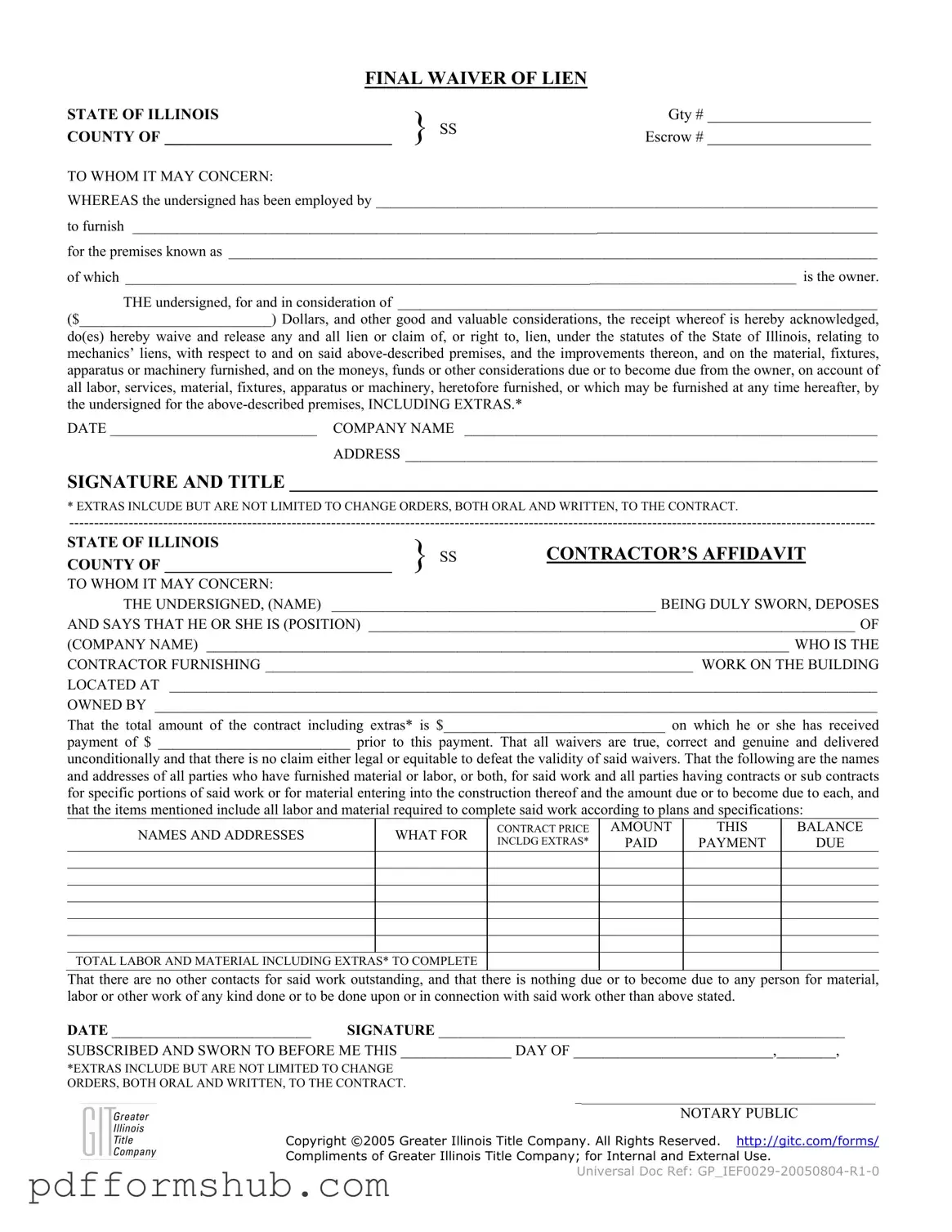Fill in Your Illinois Final Waiver Of Lien Form
The Illinois Final Waiver of Lien form serves as a critical document in the construction industry, allowing contractors and subcontractors to formally waive their right to place a lien on a property once they have received payment for their work. This form ensures that all parties involved in a construction project are clear about the financial transactions and obligations, promoting transparency and trust. If you need to complete this form, please click the button below.
Customize Form

Fill in Your Illinois Final Waiver Of Lien Form
Customize Form

Customize Form
or
Free PDF Form
Short deadline? Complete this form now
Complete Illinois Final Waiver Of Lien online without printing hassles.